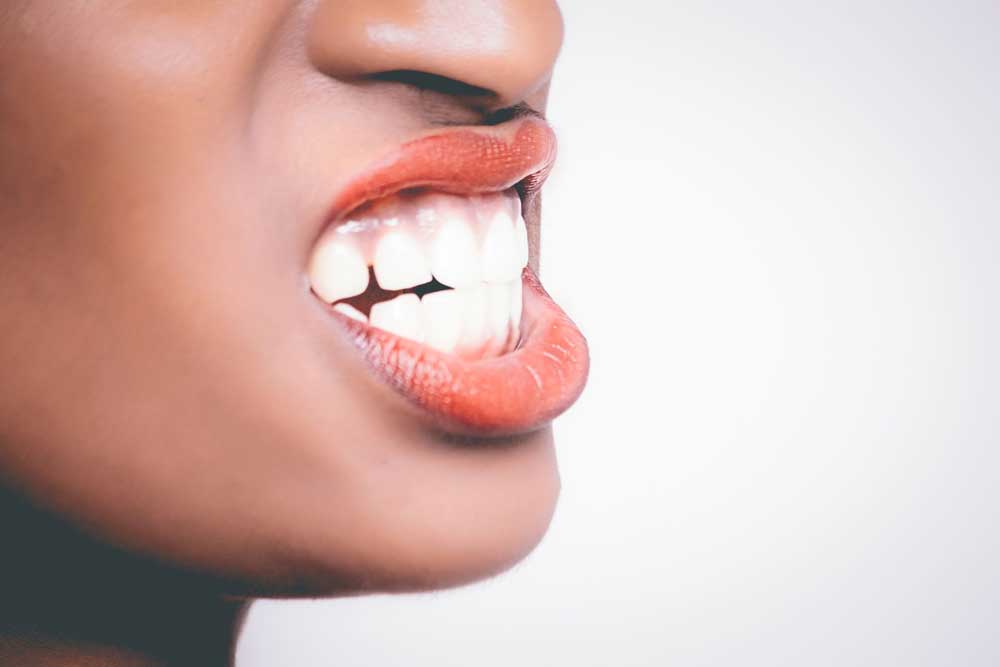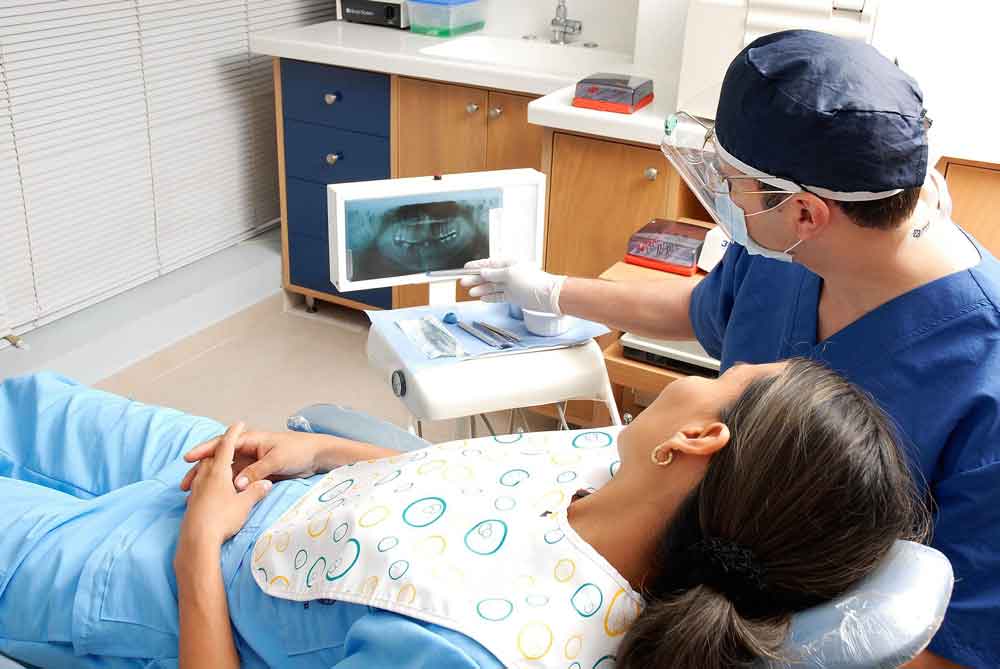Wisdom teeth can be a pain (both literally and figuratively) for many people. Nicknamed for the fact that they come through when you are older and supposedly wiser, wisdom teeth are the last set of molars that grow furthest back in your mouth.
For some, the lucky ones, they will feel no pain at all and can live happily with their wisdom teeth growing or not even have them come through at all. However, for others, the pain and discomfort that they bring mean wisdom teeth treatment and removal is not only desired, its necessary.
Why do wisdom teeth give us pain?
Think about it this way, have you ever tried to squeeze one more book into a bookshelf that was full? Or one last thing into the fridge as the door struggled to close? When another set of teeth comes into your mouth when its already full, a similar problem occurs. There may not be enough room in your mouth for all the teeth to fit, and from there comes pain and discomfort.
For some, your wisdom tooth pain can be treated with medications, and they can stay in your mouth, but for others, they will need to be removed. Some of the main reasons that your wisdom teeth will need to be removed include:
- They’re impacted. Because they’re so far back in your mouth, wisdom teeth may not come in normally. They can be trapped in your jawbone or gums, which can be painful.
- They come in at the wrong angle. They may press against your other teeth.
- Your mouth isn’t big enough. Your jaw has no room for an extra set of molars.
- You have cavities or gum disease. You may not be able to reach your wisdom teeth with your toothbrush or dental floss.
If you are feeling pain around your jaw and gums, you may be wondering if you have impacted wisdom teeth. Of course, the best way to see if you need your wisdom teeth removed is to see your dentist, but there are some common signs to look for to get a general idea if the discomfort you’re feeling is related to your wisdom teeth.
General warning signs you may need wisdom teeth treatment
If you have any dental issues, you should be seen by your dentist, that’s a given. Unfortunately, when it comes tour teeth and gums, there is no such thing as home remedies or quick fixes– if you’re wisdom teeth need to be removed, there’s no shortcutting your way around it.
If you have experienced any of the following symptoms, you may have impacted wisdom teeth that need treatment.
- Irritated, red or swollen gums in the back of your mouth
- Discomfort opening your mouth
- Jaw pain that keeps you up at night or distracts your day to day routine
- Bad breath
- Bad taste when biting
- Fever
Treatment for impacted wisdom teeth

Putting off the treatment or even initial dentist visit can only make things more painful for you in the long run. As much as some people don’t like going to the dentist, this is an unavoidable visit once the pin or signs that you may be suffering from impacted wisdom teeth begins.
A dentist will confirm whether you have impacted wisdom teeth first by looking into your mouth and then taking x-rays. The teeth may not need to be removed or extracted, in which case you can take pain medicine and use some warm saltwater rinse to soothe your gums. If an impacted tooth is causing problems for the rest of your mouth or jaw, it’s likely the dentist will want to remove it surgically—this is called extraction. Wisdom tooth extraction can leave your mouth sore for a few days, so you’ll need to take time off work or school and eat only safe, soft foods.
Getting your wisdom teeth removed is a quick procedure that generally takes about 45 minutes. You’ll receive one of the following anaesthesia’s to make sure its pain free for you, one of the most important elements for many patients.
- Local: Your doctor will numb your mouth with a shot in your gums. You may also breathe nitrous oxide, or laughing gas, to relax or even doze during surgery. You should feel alert again shortly afterwards.
- IV sedation: The surgeon will numb your mouth and also give you drugs through a vein in your arm to make you drowsy. You might sleep during the whole procedure.
- General: You’ll either get drugs through a vein or breathe in gas through a mask. You’ll be asleep the whole time and might not wake up for an hour or so after the surgery.
Wisdom Teeth Recovery
After getting your wisdom teeth removed, you can’t expect to walk straight out and back to work or school. Recovery takes time, and you’ll more than likely need to take a few days at home to rest and recover.
Your doctor may have to cut your gums or bone to get the teeth out because wisdom teeth are often larger than the rest of your teeth. If so, they’ll stitch the wounds shut, so they heal quickly. Don’t worry; these stitches usually dissolve after a few days.
It’s good to have a general idea of what to expect after you have your wisdom teeth removed so that you won’t be shocked or worried about any of the common after-procedure side effects.
- Swelling and bleeding. Removal may cause swelling and some bleeding for the first few days, but over-the-counter painkillers, such as paracetamol or ibuprofen, can help alleviate the pain.
- Avoid hard foods, stick to soups and liquids. In the first 24 hours post removal, it’s best to avoid applying pressure or suction to the wound and only rinse your mouth very gently if necessary for comfort.
- Nausea is common after surgery. Sometimes pain medications are the cause. Nausea can be reduced by preceding each pain pill with a small amount of soft food, and a large class of water.
If you feel something hard or sharp edges in the surgical areas, it is likely you are feeling the bony walls which once supported the extracted teeth. Occasionally, small slivers of bone may work themselves out during the following week or so.
Tips for aftercare and getting back to your normal routine
After you are seeing a reduction in swelling and blood loss and are starting to feel like your normal self, there is a heap of things you can do to make sure that you are taking the best care of your mouth.
Mouth Rinses
Keeping your mouth clean after wisdom teeth removal surgery is essential. If you were prescribed mouthwash from your dentist or your surgeon, rinse the mouth very gently and let the liquid drool from the mouth, avoiding any vigorous swishing or spitting or for the first six days.
Brushing your teeth
Get back to your normal brushing and flossing routine as soon as you can. Of course, your soreness and discomfort may not allow you to brush as vigorously as you normally would but try and do what you can to keep your oral hygiene up and to help you feel fresh.
Ready to learn more?
At ProSmiles, we are always trying to bring the best and latest dental information to our customers, so you always know what to expect. Take a look at our blogs to read more.
